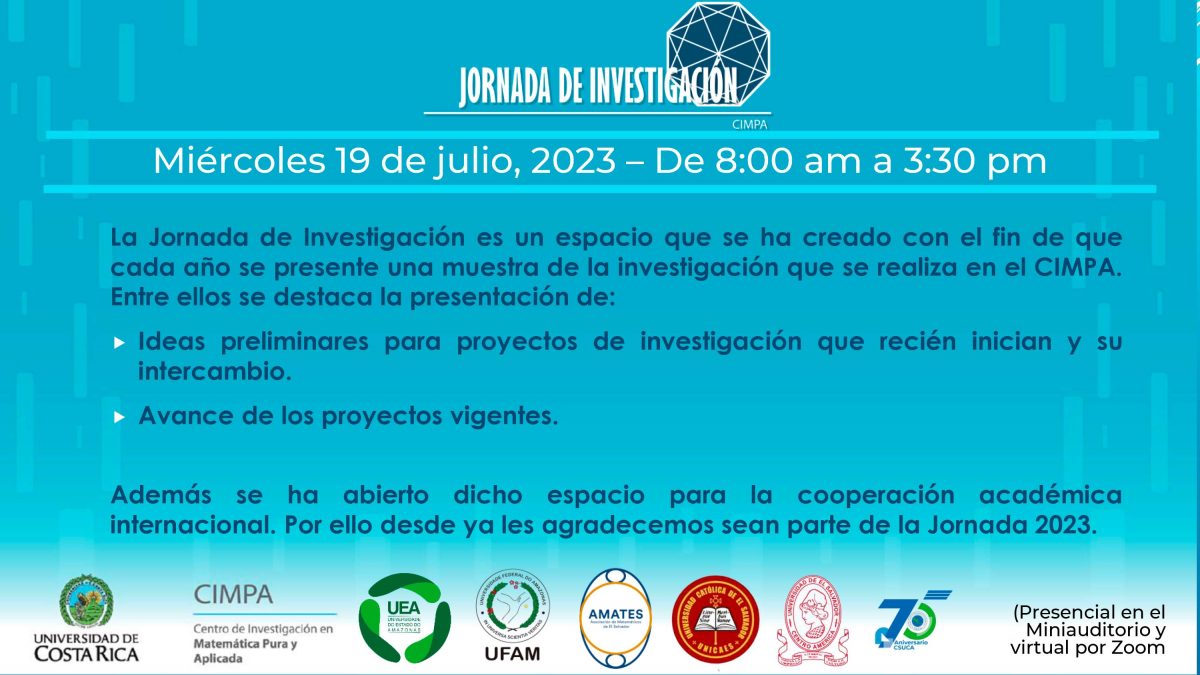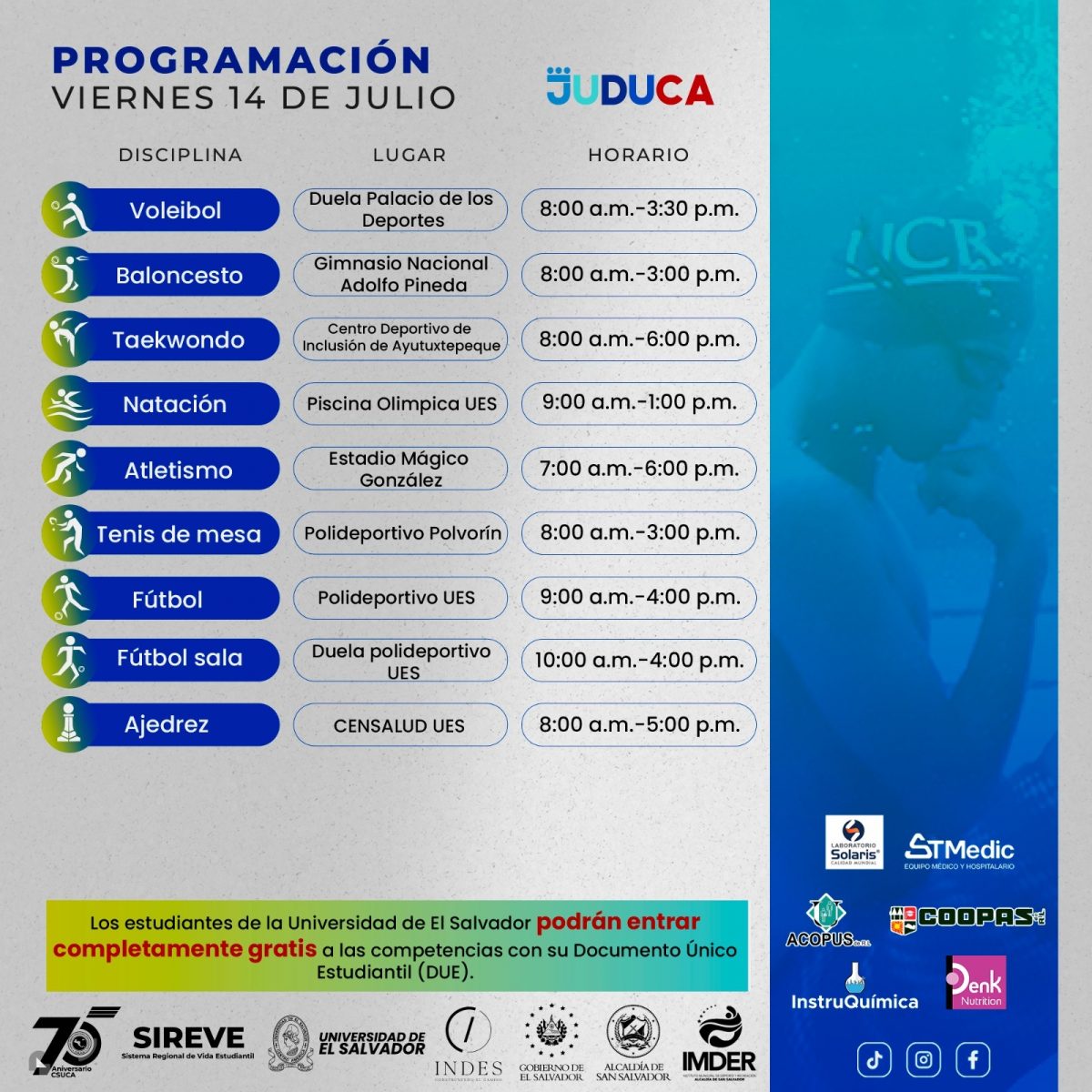Author: Mario De León
Taller de retroalimentación para pre selección de proyectos
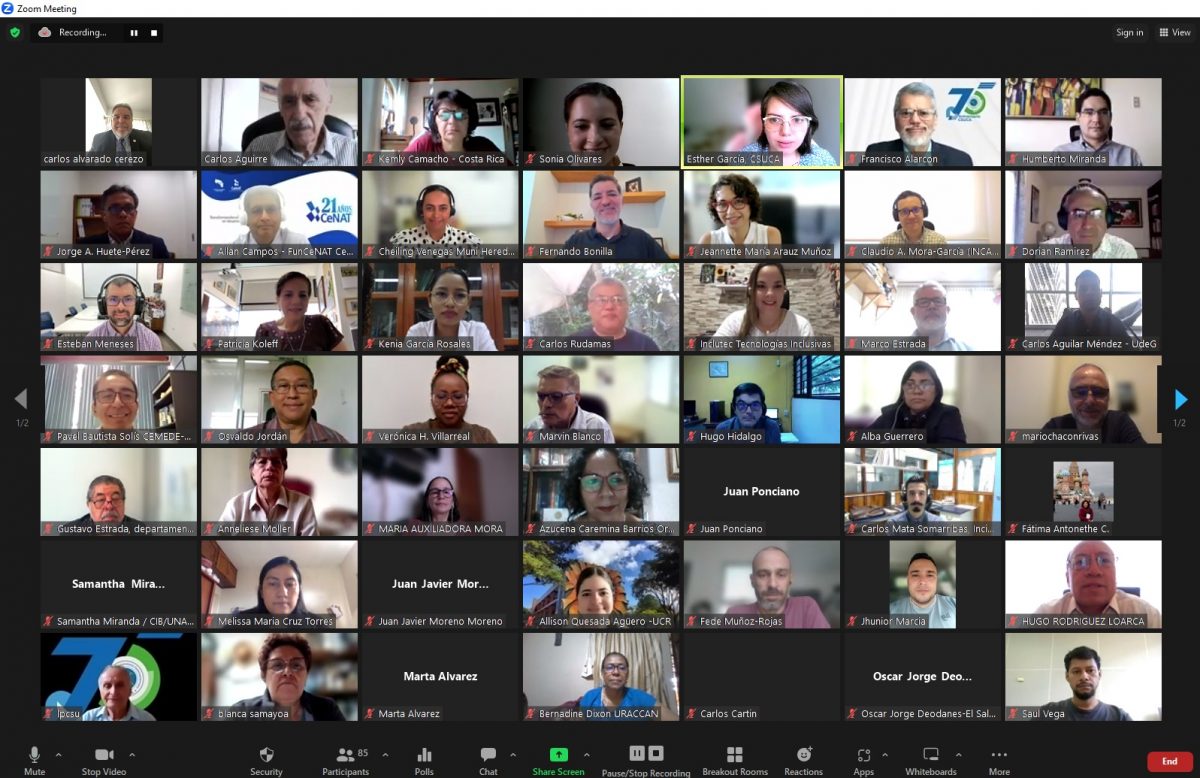
Centroamérica, 13 de julio de 2023
El día de hoy se realizo el taller de retroalimentación para las propuestas pre seleccionadas en el marco del proyecto regional “Fortaleciendo sistemas inclusivos de ciencia e innovación en América Latina a través de una red de investigación colaborativa” coordinado por el Consejo Superior Universitario Centroamericano -CSUCA-, con apoyo de la Comisión para el Desarrollo Científico y Tecnológico de Centroamérica y Panamá -CTCAP- y la Secretaría General del Sistema de Integración Centroamericana -SG SICA-, con el apoyo financiero del Centro Internacional de Investigaciones para el Desarrollo -IDRC- de Canadá.
En febrero de 2023 se habilitó la convocatoria pública a la presentación de propuestas de proyectos con el propósito fortalecer el nexo innovación-inclusión en la región centroamericana, en sus dos vertientes complementarias: Innovación para la inclusión cuando el foco son los resultados del proceso; y la innovación inclusiva cuando ésta se refiere a un proceso participativo mediante el cual la innovación emerge.
En respuesta a la convocatoria se recibieron 73 propuestas de las cuales, luego de una minuciosa evaluación, se pre seleccionaron 26, de las cuales se elegirán 15 propuestas de proyectos que tendrán una duración de 22 meses, las cuales deberán estar bajo el enfoque de cuatro ejes temáticos:
· Territoriality, risk and local development,
· Crecimiento económico, productividad, competitividad y desarrollo sostenible,
· Transformación digital, automatización, inteligencia artificial y
· Ciencia de datos, y cambio climático y gestión ambiental.
Cabe destacar que el desarrollo del taller conto con la participación de Carlos Aguirre, coordinador general, quien realizó una presentación sobre las bases en las cuales se desarrolla el proyecto regional, así como Kemly Camacho, consultora de género, con el fin de ampliar información sobre las bases que se necesitan en la temática para el desarrollo de las propuestas. Por último, se conto con un espacio para atender las preguntas y respuestas que han surgido por parte de las y los diferentes proyectistas.
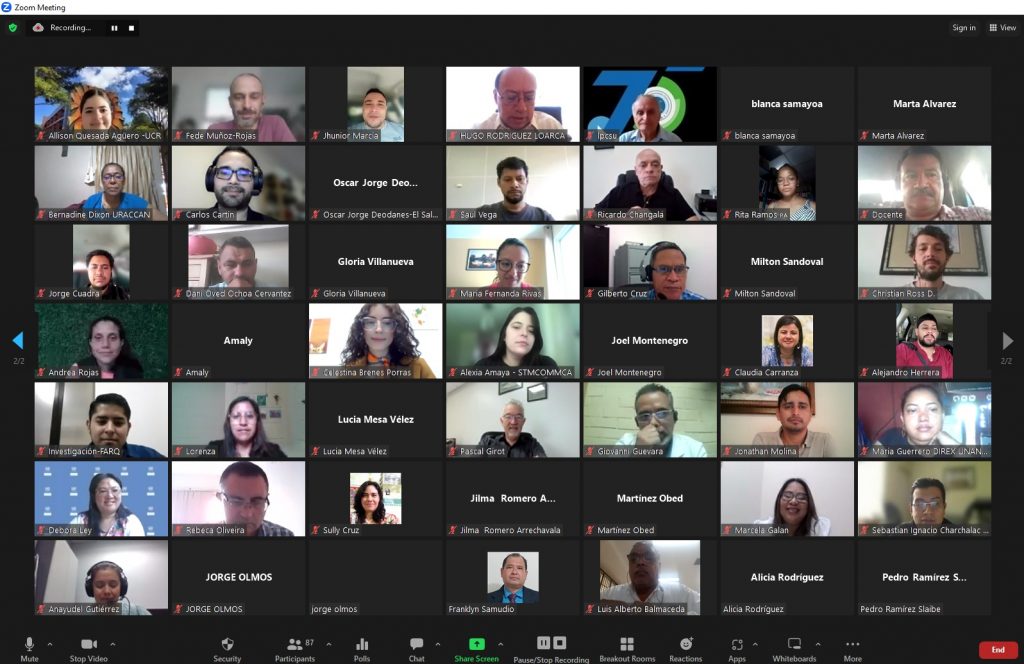
Programación JUDUCA Jueves 13/07/23
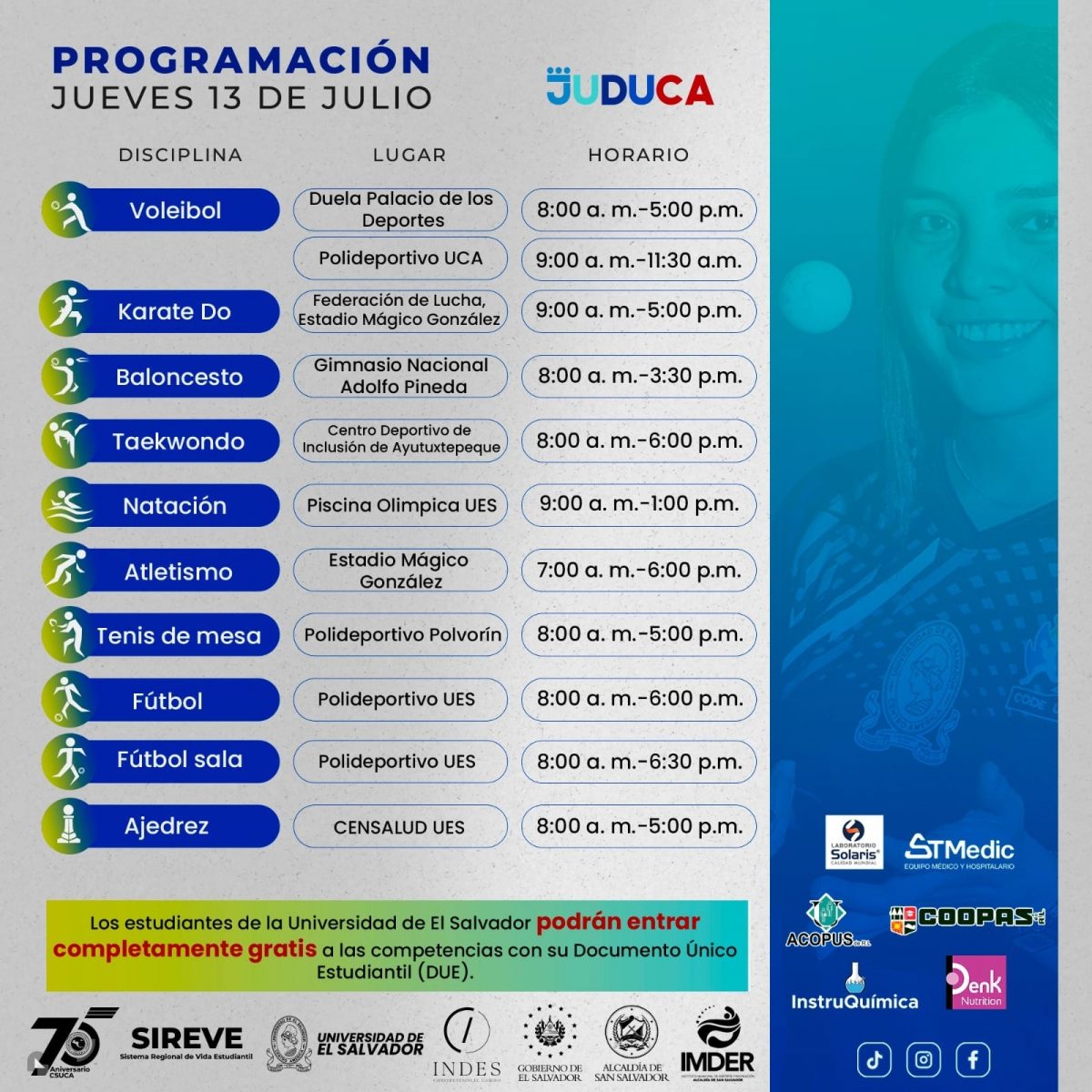
Programación JUDUCA Miercoles 12/07/23
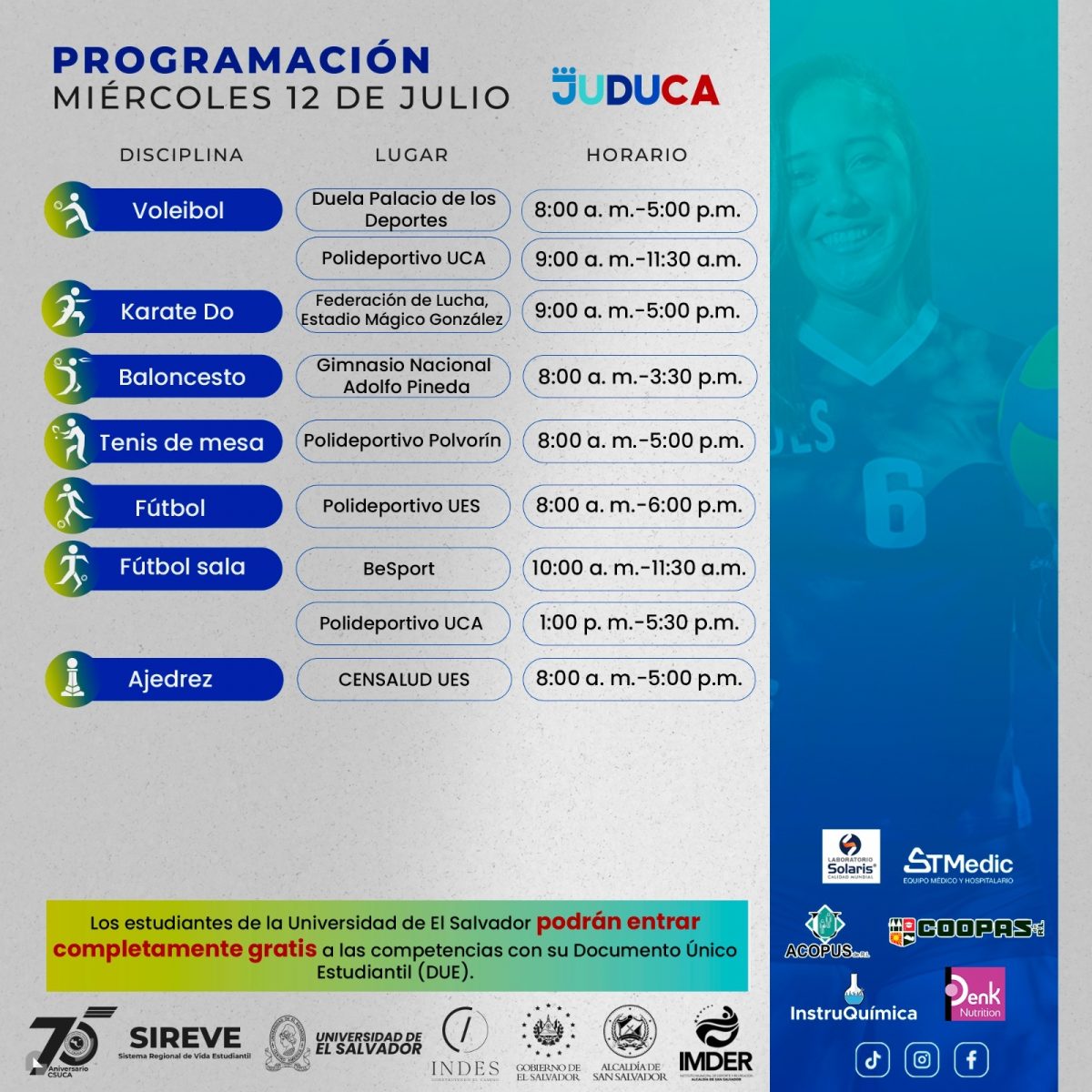
Inauguración de los JUDUCA 2023
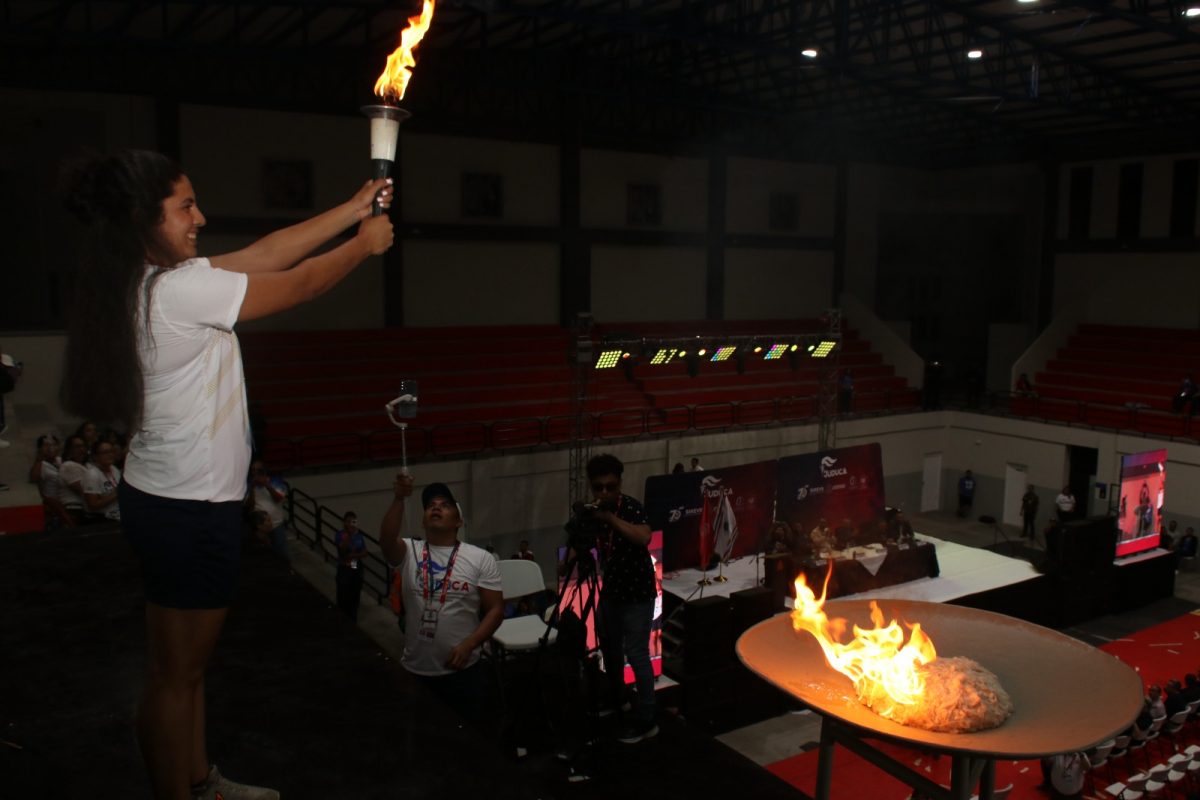
El Salvador City, July 11, 2023
Tras una jornada de juegos, la Universidad de El Salvador inauguró los VIII Juegos Deportivos Universitarios Centroamericanos -JUDUCA-, los cuales se llevan a cabo en Ciudad de El Salvador durante los días 11 al 15 de julio del presente año.
Dentro del acto inaugural se contó con la participación de mil seiscientos atletas de diferentes ramas como lo son fútbol, fútbol sala, voleibol, baloncesto, karate, taekwondo, atletismo, ajedrez, entre otros. Siendo representantes de las distintas universidades que conforman el Consejo Superior Universitario Centroamericano, junto a autoridades equipos de las diferentes universidades representadas y artistas salvadoreños que se presentaron dentro de la ceremonia.
Para dar inicio al acto, Roger Arias, rector de la Universidad de El Salvador -UES-, menciono “Esa capacidad de generación de profesionales integrales para nuestras sociedades que no solo se desenvuelven con grandes liderazgos en el campo laboral, sino que también son profesionales talento en el deporte, en el arte, y en la cultura”, recalcando que la integralidad es la que debe caracterizar a los centroamericanos.
Mientras que Carlos Alvarado Cerezo, Secretario General de CSUCA, reflexionó en que las universidades son generadoras de conocimiento universal, construido en colectivo “y nuestra funcionalidad en la vida en sociedad está ligada directamente al tratado de ese conocimiento para una adecuada convivencia social y pacífica”.
Por su parte, Juan Rosa Quintanilla, vicerrector Administrativo de la UES, expresó su emoción al ver la energía de las y los atletas centroamericanos. Además, recordó su experiencia como estudiante universitario en la que destacó valores como la amistad, solidaridad y fraternidad entre los países centroamericanos.
Al acto también asistió Yamil Bukele, presidente del Instituto Nacional de los Deportes, quien destacó la energía y el entusiasmo de estudiantes atletas, por lo que les invitó a disfrutar de su estadía en la UES y en los escenarios deportivos donde se desarrollan las competiciones.
El ingreso a las competencias es gratuito y se espera que asistan particularmente miembros de la comunidad universitaria, tanto estudiantes, docentes y trabajadores, así como se invita a la comunidad universitaria centroamericana y del Caribe a dar seguimiento al desarrollo de las actividades deportivas mediante la página oficial de los JUDUCA 2023, mediante el siguiente enlace: https://www.facebook.com/JUDUCA2023.
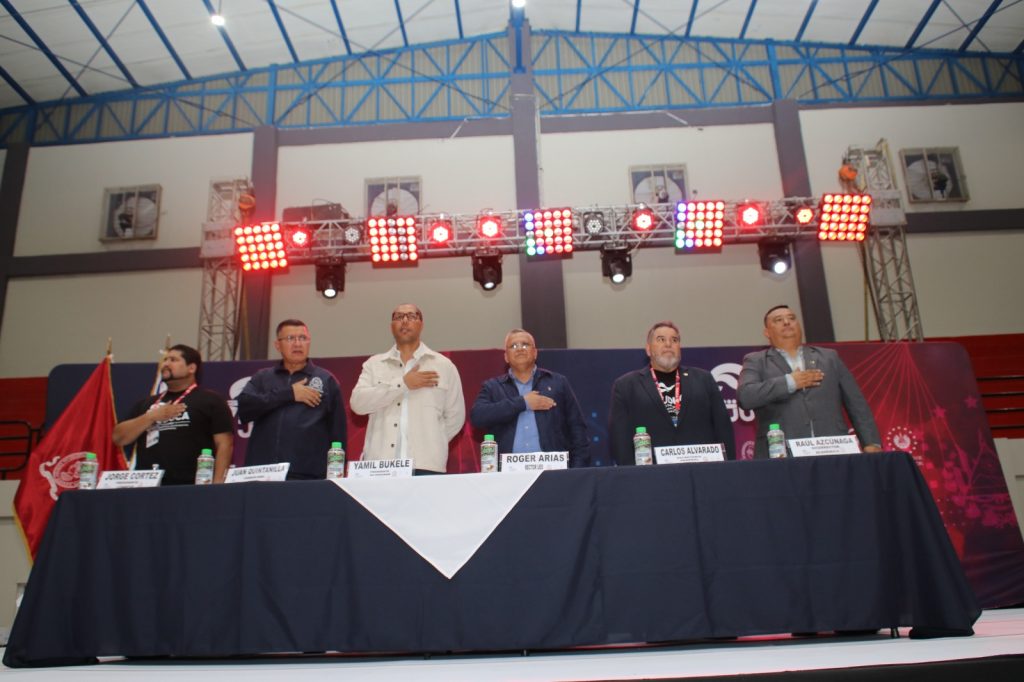
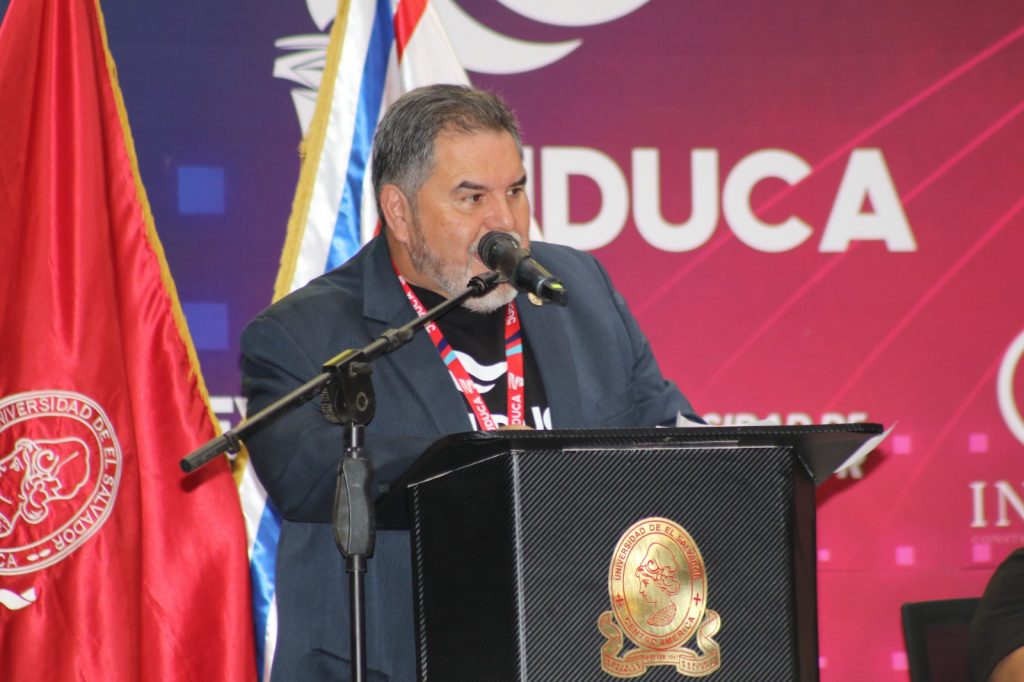
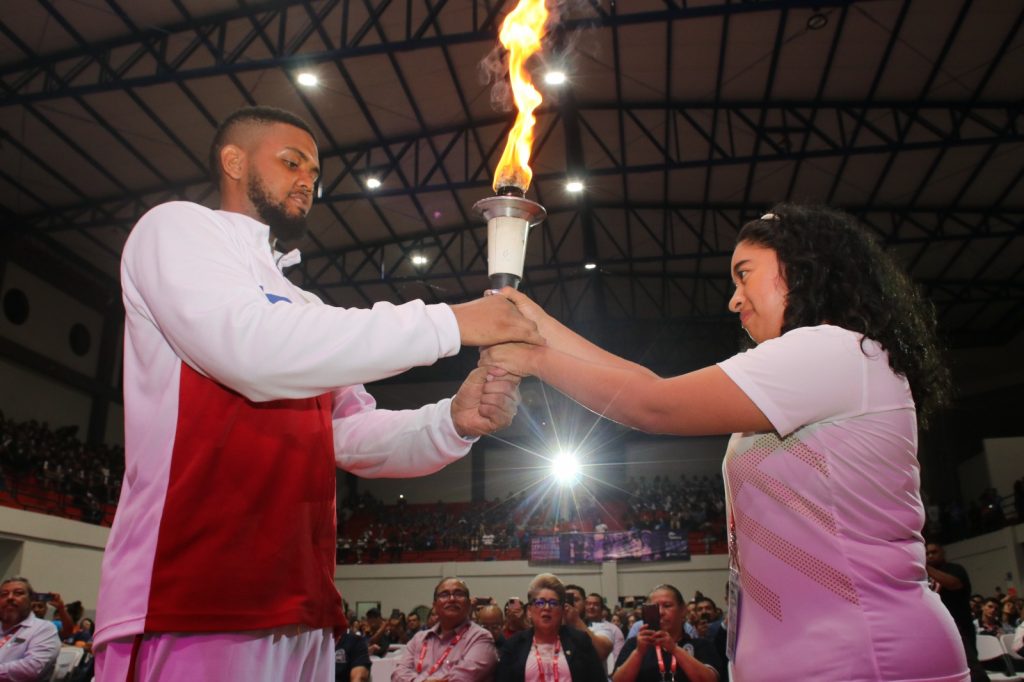
JORNADA DE INVESTIGACIÓN
